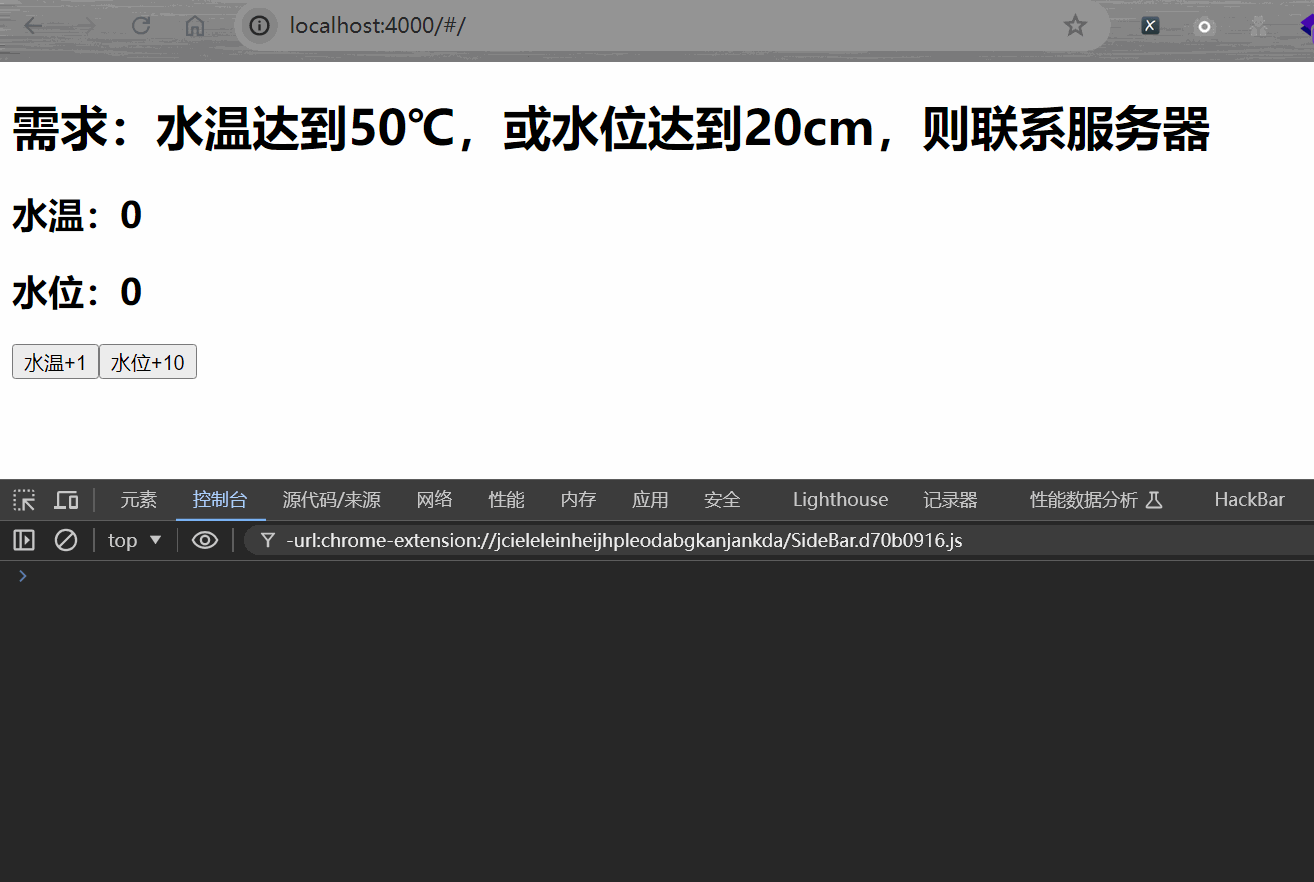1、README
前言
本demo是使用开源项目libmad来将MP3数据解码成PCM(16位有符号小字节序)数据。(环境:x86_64 Ubuntu16.04 64位)
a. 编译使用
libmad的编译:
-
源码下载地址1:https://sourceforge.net/projects/mad/files/libmad/
-
源码下载地址2:https://www.linuxfromscratch.org/blfs/view/svn/multimedia/libmad.html
tar xzf libmad-0.15.1b.tar.gz
cd libmad-0.15.1b/
sed -i '/-fforce-mem/d' configure # 如果不执行这句命令,一些编译器可能会报"gcc: error: unrecognized command line option '-fforce-mem'"错误
./configure --prefix=$PWD/_install --enable-static --disable-shared
make
make install
demo的编译与使用:
$ make clean && make
$
$ ./mp32pcm
Usage:
./mp32pcm <in MP3 file> <out PCM file>
Examples:
./mp32pcm audio/test1_44100_stereo.mp3 out1_44100_16bit_stereo.pcm
./mp32pcm audio/test2_22050_stereo.mp3 out2_22050_16bit_stereo.pcm
./mp32pcm audio/test3_22050_mono.mp3 out3_22050_16bit_mono.pcm
./mp32pcm audio/test4_8000_mono.mp3 out4_8000_16bit_mono.pcm
b. 参考文章
- libmad linux交叉编译移植_SongYuLong的博客的博客-CSDN博客_libmad 交叉编译l
- 基于Libmad的流媒体解码播放Demo - 简书
- libmad-0.15.1b/minimad.c(以放到本demo中的docs/reference_code/目录。)
c. demo目录架构
$ tree
.
├── audio
│ ├── out1_44100_16bit_stereo.pcm
│ ├── out2_22050_16bit_stereo.pcm
│ ├── out3_22050_16bit_mono.pcm
│ ├── out4_8000_16bit_mono.pcm
│ ├── test1_44100_stereo.mp3
│ ├── test2_22050_stereo.mp3
│ ├── test3_22050_mono.mp3
│ └── test4_8000_mono.mp3
├── docs
│ ├── libmad linux交叉编译移植_SongYuLong的博客的博客-CSDN博客_libmad 交叉编译.mhtml
│ ├── reference_code
│ │ └── minimad.c
│ └── 基于Libmad的流媒体解码播放Demo - 简书.mhtml
├── include
│ └── mad.h
├── lib
│ └── libmad.a
├── main.c
├── Makefile
└── README.md
2、主要代码片段
main.c
/*
* libmad - MPEG audio decoder library
* Copyright (C) 2000-2004 Underbit Technologies, Inc.
*
* This program is free software; you can redistribute it and/or modify
* it under the terms of the GNU General Public License as published by
* the Free Software Foundation; either version 2 of the License, or
* (at your option) any later version.
*
* This program is distributed in the hope that it will be useful,
* but WITHOUT ANY WARRANTY; without even the implied warranty of
* MERCHANTABILITY or FITNESS FOR A PARTICULAR PURPOSE. See the
* GNU General Public License for more details.
*
* You should have received a copy of the GNU General Public License
* along with this program; if not, write to the Free Software
* Foundation, Inc., 59 Temple Place, Suite 330, Boston, MA 02111-1307 USA
*
* $Id: minimad.c,v 1.4 2004/01/23 09:41:32 rob Exp $
*/
# include <stdio.h>
# include <unistd.h>
# include <sys/stat.h>
# include <sys/mman.h>
# include <sys/types.h>
# include <sys/stat.h>
# include <fcntl.h>
# include <stdlib.h>
# include "mad.h"
#ifdef ENABLE_DEBUG
#define DEBUG(fmt, args...) printf(fmt, ##args)
#else
#define DEBUG(fmt, args...)
#endif
/*
* This is a private message structure. A generic pointer to this structure
* is passed to each of the callback functions. Put here any data you need
* to access from within the callbacks.
*/
struct buffer {
unsigned char const *inMp3Data;
unsigned long inMp3DataLen;
unsigned char *outPcmData;
unsigned long outPcmDataLen;
};
/*
* This is perhaps the simplest example use of the MAD high-level API.
* Standard input is mapped into memory via mmap(), then the high-level API
* is invoked with three callbacks: input, output, and error. The output
* callback converts MAD's high-resolution PCM samples to 16 bits, then
* writes them to standard output in little-endian, stereo-interleaved
* format.
*/
static int mp3_decode_body(struct buffer *);
int main(int argc, char *argv[])
{
struct stat stat;
int fdMp3 = -1;
void *vfdMp3 = NULL; /* mmap */
FILE *fpPcm = NULL;
char *inMp3FileName = NULL;
char *outPcmFileName = NULL;
struct buffer bufferInfo= {};
if (argc != 3)
{
printf("Usage: \n"
" %s <in MP3 file> <out PCM file>\n"
"Examples: \n"
" %s audio/test1_44100_stereo.mp3 out1_44100_16bit_stereo.pcm\n"
" %s audio/test2_22050_stereo.mp3 out2_22050_16bit_stereo.pcm\n"
" %s audio/test3_22050_mono.mp3 out3_22050_16bit_mono.pcm\n"
" %s audio/test4_8000_mono.mp3 out4_8000_16bit_mono.pcm\n",
argv[0], argv[0], argv[0], argv[0], argv[0]);
return -1;
}
else
{
inMp3FileName = argv[1];
outPcmFileName = argv[2];
}
/* open MP3 file and map to memory */
fdMp3 = open(inMp3FileName, O_RDONLY);
if (fdMp3 < 0)
{
perror("open input MP3 file failed");
goto exit;
}
if (fstat(fdMp3/*STDIN_FILENO*/, &stat) == -1 ||
stat.st_size == 0)
goto exit;
printf("decode input MP3 size: %lu\n", stat.st_size);
vfdMp3 = mmap(0, stat.st_size, PROT_READ, MAP_SHARED, fdMp3/*STDIN_FILENO*/, 0);
if (vfdMp3 == MAP_FAILED)
{
printf("map MP3 file to memory failed!\n");
goto exit;
}
/* fix up our struct, and we will use to decode mp3 data! */
bufferInfo.inMp3Data = vfdMp3;
bufferInfo.inMp3DataLen = stat.st_size;
bufferInfo.outPcmData = malloc(stat.st_size * 15); /* decode out buf size */
if (!bufferInfo.outPcmData)
{
printf("alloc memory to decode output PCM failed!\n");
goto exit;
}
bufferInfo.outPcmDataLen = 0; /* init to 0 */
/* decode MP3 data with our struct !!!!! */
mp3_decode_body(&bufferInfo);
/* save the decoded out PCM data */
fpPcm = fopen(outPcmFileName, "wb");
if (!fpPcm)
{
printf("open output PCM file failed!\n");
goto exit;
}
else
{
printf("decode output total PCM size: %lu\n", bufferInfo.outPcmDataLen);
fwrite(bufferInfo.outPcmData, 1, bufferInfo.outPcmDataLen, fpPcm);
fflush(fpPcm);
fclose(fpPcm);
}
exit:
if (munmap(vfdMp3, stat.st_size) == -1)
return -1;
if (fdMp3)
close(fdMp3);
if (bufferInfo.outPcmData)
free(bufferInfo.outPcmData);
return 0;
}
/*
* This is the input callback. The purpose of this callback is to (re)fill
* the stream buffer which is to be decoded. In this example, an entire file
* has been mapped into memory, so we just call mad_stream_buffer() with the
* address and length of the mapping. When this callback is called a second
* time, we are finished decoding.
*/
static
enum mad_flow mp3_decode_input(void *data,
struct mad_stream *stream)
{
struct buffer *buffer = data;
if (!buffer->inMp3DataLen)
return MAD_FLOW_STOP;
DEBUG("[%s: %d] decode input size: %lu\n", __FUNCTION__, __LINE__, buffer->inMp3DataLen);
mad_stream_buffer(stream, buffer->inMp3Data, buffer->inMp3DataLen);
buffer->inMp3DataLen = 0;
return MAD_FLOW_CONTINUE;
}
/*
* The following utility routine performs simple rounding, clipping, and
* scaling of MAD's high-resolution samples down to 16 bits. It does not
* perform any dithering or noise shaping, which would be recommended to
* obtain any exceptional audio quality. It is therefore not recommended to
* use this routine if high-quality output is desired.
*/
static inline
signed int scale(mad_fixed_t sample)
{
/* round */
sample += (1L << (MAD_F_FRACBITS - 16));
/* clip */
if (sample >= MAD_F_ONE)
sample = MAD_F_ONE - 1;
else if (sample < -MAD_F_ONE)
sample = -MAD_F_ONE;
/* quantize */
return sample >> (MAD_F_FRACBITS + 1 - 16);
}
/*
* This is the output callback function. It is called after each frame of
* MPEG audio data has been completely decoded. The purpose of this callback
* is to output (or play) the decoded PCM audio.
*/
static
enum mad_flow mp3_decode_output(void *data,
struct mad_header const *header,
struct mad_pcm *pcm)
{
struct buffer *buffer = data;
unsigned int nchannels, nsamples;
mad_fixed_t const *left_ch, *right_ch;
/* pcm->samplerate contains the sampling frequency */
nchannels = pcm->channels;
nsamples = pcm->length;
left_ch = pcm->samples[0];
right_ch = pcm->samples[1];
DEBUG("[%s: %d] decode ouput size: %d\n", __FUNCTION__, __LINE__, nsamples*2*nchannels/* print as 16bit */);
while (nsamples--) {
signed int sample;
/* output sample(s) in 16-bit signed little-endian PCM */
sample = scale(*left_ch++);
#if 0
putchar((sample >> 0) & 0xff);
putchar((sample >> 8) & 0xff);
#else
buffer->outPcmData[buffer->outPcmDataLen++] = (sample >> 0) & 0xff;
buffer->outPcmData[buffer->outPcmDataLen++] = (sample >> 8) & 0xff;
#endif
if (nchannels == 2) {
sample = scale(*right_ch++);
#if 0
putchar((sample >> 0) & 0xff);
putchar((sample >> 8) & 0xff);
#else
buffer->outPcmData[buffer->outPcmDataLen++] = (sample >> 0) & 0xff;
buffer->outPcmData[buffer->outPcmDataLen++] = (sample >> 8) & 0xff;
#endif
}
}
return MAD_FLOW_CONTINUE;
}
/*
* This is the error callback function. It is called whenever a decoding
* error occurs. The error is indicated by stream->error; the list of
* possible MAD_ERROR_* errors can be found in the mad.h (or stream.h)
* header file.
*/
static
enum mad_flow mp3_decode_error(void *data,
struct mad_stream *stream,
struct mad_frame *frame)
{
struct buffer *buffer = data;
fprintf(stderr, "decoding error 0x%04x (%s) at byte offset %lu\n",
stream->error, mad_stream_errorstr(stream),
stream->this_frame - buffer->inMp3Data);
/* return MAD_FLOW_BREAK here to stop decoding (and propagate an error) */
return MAD_FLOW_CONTINUE;
}
/*
* This is the function called by main() above to perform all the decoding.
* It instantiates a decoder object and configures it with the input,
* output, and error callback functions above. A single call to
* mad_decoder_run() continues until a callback function returns
* MAD_FLOW_STOP (to stop decoding) or MAD_FLOW_BREAK (to stop decoding and
* signal an error).
*/
static
int mp3_decode_body(struct buffer *bufferInfo)
{
//struct buffer buffer;
struct mad_decoder decoder;
int result;
#if 0
/* initialize our private message structure */
buffer.start = start;
buffer.length = length;
#endif
/* configure input, output, and error functions */
mad_decoder_init(&decoder, bufferInfo,
mp3_decode_input, 0 /* header */, 0 /* filter */, mp3_decode_output,
mp3_decode_error, 0 /* message */);
/* start decoding */
result = mad_decoder_run(&decoder, MAD_DECODER_MODE_SYNC);
/* release the decoder */
mad_decoder_finish(&decoder);
return result;
}
3、demo下载地址(任选一个)
-
https://download.csdn.net/download/weixin_44498318/89525488
-
https://gitee.com/linriming/audio_mp32pcm_with_libmad.git
-
https://github.com/linriming20/audio_mp32pcm_with_libmad.git


















